






























See Also
See Again
© Shutterstock
0 / 31 Fotos
Lack of sleep
- Lack of sleep could make your eyes appear swollen in the morning. Sleepless nights can weaken the muscles around your eyes. This can also lead to a loss of collagen under the eyes. This causes fluid to collect in the area, making the area beneath your eyes swell up.
© Shutterstock
1 / 31 Fotos
Allergies
- Allergies can, of course, also cause puffy eyes. Triggers release histamine into your system, which causes inflammation and under-eye swelling.
© Shutterstock
2 / 31 Fotos
Period
- Similar to period bloating during your monthly cycle, your eyes can retain water as well because of higher hormone levels. It generally goes away after a few days.
© Shutterstock
3 / 31 Fotos
Crying
- The salt in tears can cause fluid retention around the eyes when you cry. The more you cry, the worse the swelling can potentially be.
© Shutterstock
4 / 31 Fotos
Salty foods
- Extra sodium can make your body retain water. The excess water causes puffiness in the face and body, especially in the morning after a salty meal.
© Shutterstock
5 / 31 Fotos
Alcohol
- Just like salty foods, alcohol also has a high concentration of sodium, making the eyes appear puffy the next day after consumption.
© Shutterstock
6 / 31 Fotos
Thyroid issues
- Sometimes, puffy eyes can be a side effect of a bigger medical condition. People with some types of hyperthyroidism can experience thickening of the fat around their eyes.
© Shutterstock
7 / 31 Fotos
Stuffy nose
- Your eyes look naturally puffier when you've got a cold. That's because the cavities that drain fluid out of your face are blocked with sinus congestion.
© Shutterstock
8 / 31 Fotos
Normal aging
- Aging causes tissues and muscles to weaken around the eyes. What's more, the fat pads descend and bulge, causing puffy under eyes.
© Shutterstock
9 / 31 Fotos
Lack of movement
- If you're too sedentary, you could experience fluid retention. Also, if you're sick or injured and lying down often, fluid can collect in your face.
© Shutterstock
10 / 31 Fotos
Kidney or liver issues
- Although it's more likely that your diet or sleep schedule is causing your eyes to swell, kidney or liver issues could be an explanation for puffy under eyes.
© Shutterstock
11 / 31 Fotos
Genetics
- You could have inherited a tendency toward puffy eyes from one or both of your parents. If there are several people in your family with puffy eyes, this could be a sign of a genetic condition that causes the puffiness.
© Shutterstock
12 / 31 Fotos
Smoking
- Smoking cigarettes, shisha, or cigars can irritate your eyes. You may also have an allergic reaction if you're around secondhand smoke.
© Getty Images
13 / 31 Fotos
Eye infection
- An eye infection can cause under-eye swelling in one or both eyes. It can be an infection in the eye or eyelid.
© Shutterstock
14 / 31 Fotos
How to treat and prevent puffy eyes
- Puffy eyes are generally harmless and don't require treatment. However, there are ways you can reduce the swelling.
© Shutterstock
15 / 31 Fotos
Cold compress
- Chill a spoon in the fridge and use the back of the spoon to massage the area gently.
© Shutterstock
16 / 31 Fotos
Tea bags
- Tea contains caffeine, which may help bring down swelling. Try soaking two tea bags in cold water. Place them over your closed eyes and relax for 15 to 20 minutes.
© Shutterstock
17 / 31 Fotos
Gel pads
- Experiment with cooling gel pads under your eye. Keep in the fridge and then pop them on your under eyes when needed.
© Shutterstock
18 / 31 Fotos
Facial massage
- Use your fingers or a cold facial roller to massage your face. Gently massage or tap around your eyes and sinuses to help drain away extra fluid.
© Shutterstock
19 / 31 Fotos
Moisturize
- Many moisturizing eye creams can help you reduce puffiness and restore a radiant appearance.
© Shutterstock
20 / 31 Fotos
Use concealer
- A concealer isn't going to take away the puffiness, but one that's a little bit lighter than your skin tone can reduce its appearance.
© Shutterstock
21 / 31 Fotos
Add extra pillows
- If you struggle with swollen eyes in the morning, increase the number of pillows you sleep with at night. This helps keep the head elevated throughout the sleep cycle. Of course, a full seven or eight hours of sleep helps!
© Shutterstock
22 / 31 Fotos
Move your body
- Moving around and exercising regularly can also promote circulation and move fluid out of the face, thus reducing puffy eyes.
© Shutterstock
23 / 31 Fotos
Diet
- Try limiting your total daily sodium intake to about one teaspoon of table salt, or less if you have certain health conditions.
© Shutterstock
24 / 31 Fotos
Minimize alcohol consumption
- If you choose to drink, and even consume salty foods at the same time, staying hydrated during and after can help minimize eye swelling later on.
© Getty Images
25 / 31 Fotos
Take an antihistamine (in moderation)
- A daily antihistamine should do the trick when it comes to helping with allergy-related puffiness. Also, try to avoid allergens as much as possible to help prevent symptoms.
© Shutterstock
26 / 31 Fotos
Stop smoking
- Quit smoking of any kind and avoid secondhand smoke to help prevent eye puffiness and other possible symptoms.
© Shutterstock
27 / 31 Fotos
Avoid allergy triggers
- This includes checking local pollen levels and staying indoors when the counts are high. Vacuum and dust your home to limit your exposure to pet dander and dust mites.
© Shutterstock
28 / 31 Fotos
In serious cases, consider a medical procedure
- Blepharoplasty is the plastic surgery of choice to remove herniated fat pads under the eyes. There's also the option of fillers and chemical peels. However, talk to a professional to find out if these options apply to you.
© Shutterstock
29 / 31 Fotos
When to see a doctor
- If your eye puffiness remains despite a healthy diet, good sleep hygiene, and other remedies, experts recommend seeking medical attention. Otherwise, occasional eye puffiness is typically normal. Sources: (Healthline) (Women's Health) (Verywell Health)
© Shutterstock
30 / 31 Fotos
© Shutterstock
0 / 31 Fotos
Lack of sleep
- Lack of sleep could make your eyes appear swollen in the morning. Sleepless nights can weaken the muscles around your eyes. This can also lead to a loss of collagen under the eyes. This causes fluid to collect in the area, making the area beneath your eyes swell up.
© Shutterstock
1 / 31 Fotos
Allergies
- Allergies can, of course, also cause puffy eyes. Triggers release histamine into your system, which causes inflammation and under-eye swelling.
© Shutterstock
2 / 31 Fotos
Period
- Similar to period bloating during your monthly cycle, your eyes can retain water as well because of higher hormone levels. It generally goes away after a few days.
© Shutterstock
3 / 31 Fotos
Crying
- The salt in tears can cause fluid retention around the eyes when you cry. The more you cry, the worse the swelling can potentially be.
© Shutterstock
4 / 31 Fotos
Salty foods
- Extra sodium can make your body retain water. The excess water causes puffiness in the face and body, especially in the morning after a salty meal.
© Shutterstock
5 / 31 Fotos
Alcohol
- Just like salty foods, alcohol also has a high concentration of sodium, making the eyes appear puffy the next day after consumption.
© Shutterstock
6 / 31 Fotos
Thyroid issues
- Sometimes, puffy eyes can be a side effect of a bigger medical condition. People with some types of hyperthyroidism can experience thickening of the fat around their eyes.
© Shutterstock
7 / 31 Fotos
Stuffy nose
- Your eyes look naturally puffier when you've got a cold. That's because the cavities that drain fluid out of your face are blocked with sinus congestion.
© Shutterstock
8 / 31 Fotos
Normal aging
- Aging causes tissues and muscles to weaken around the eyes. What's more, the fat pads descend and bulge, causing puffy under eyes.
© Shutterstock
9 / 31 Fotos
Lack of movement
- If you're too sedentary, you could experience fluid retention. Also, if you're sick or injured and lying down often, fluid can collect in your face.
© Shutterstock
10 / 31 Fotos
Kidney or liver issues
- Although it's more likely that your diet or sleep schedule is causing your eyes to swell, kidney or liver issues could be an explanation for puffy under eyes.
© Shutterstock
11 / 31 Fotos
Genetics
- You could have inherited a tendency toward puffy eyes from one or both of your parents. If there are several people in your family with puffy eyes, this could be a sign of a genetic condition that causes the puffiness.
© Shutterstock
12 / 31 Fotos
Smoking
- Smoking cigarettes, shisha, or cigars can irritate your eyes. You may also have an allergic reaction if you're around secondhand smoke.
© Getty Images
13 / 31 Fotos
Eye infection
- An eye infection can cause under-eye swelling in one or both eyes. It can be an infection in the eye or eyelid.
© Shutterstock
14 / 31 Fotos
How to treat and prevent puffy eyes
- Puffy eyes are generally harmless and don't require treatment. However, there are ways you can reduce the swelling.
© Shutterstock
15 / 31 Fotos
Cold compress
- Chill a spoon in the fridge and use the back of the spoon to massage the area gently.
© Shutterstock
16 / 31 Fotos
Tea bags
- Tea contains caffeine, which may help bring down swelling. Try soaking two tea bags in cold water. Place them over your closed eyes and relax for 15 to 20 minutes.
© Shutterstock
17 / 31 Fotos
Gel pads
- Experiment with cooling gel pads under your eye. Keep in the fridge and then pop them on your under eyes when needed.
© Shutterstock
18 / 31 Fotos
Facial massage
- Use your fingers or a cold facial roller to massage your face. Gently massage or tap around your eyes and sinuses to help drain away extra fluid.
© Shutterstock
19 / 31 Fotos
Moisturize
- Many moisturizing eye creams can help you reduce puffiness and restore a radiant appearance.
© Shutterstock
20 / 31 Fotos
Use concealer
- A concealer isn't going to take away the puffiness, but one that's a little bit lighter than your skin tone can reduce its appearance.
© Shutterstock
21 / 31 Fotos
Add extra pillows
- If you struggle with swollen eyes in the morning, increase the number of pillows you sleep with at night. This helps keep the head elevated throughout the sleep cycle. Of course, a full seven or eight hours of sleep helps!
© Shutterstock
22 / 31 Fotos
Move your body
- Moving around and exercising regularly can also promote circulation and move fluid out of the face, thus reducing puffy eyes.
© Shutterstock
23 / 31 Fotos
Diet
- Try limiting your total daily sodium intake to about one teaspoon of table salt, or less if you have certain health conditions.
© Shutterstock
24 / 31 Fotos
Minimize alcohol consumption
- If you choose to drink, and even consume salty foods at the same time, staying hydrated during and after can help minimize eye swelling later on.
© Getty Images
25 / 31 Fotos
Take an antihistamine (in moderation)
- A daily antihistamine should do the trick when it comes to helping with allergy-related puffiness. Also, try to avoid allergens as much as possible to help prevent symptoms.
© Shutterstock
26 / 31 Fotos
Stop smoking
- Quit smoking of any kind and avoid secondhand smoke to help prevent eye puffiness and other possible symptoms.
© Shutterstock
27 / 31 Fotos
Avoid allergy triggers
- This includes checking local pollen levels and staying indoors when the counts are high. Vacuum and dust your home to limit your exposure to pet dander and dust mites.
© Shutterstock
28 / 31 Fotos
In serious cases, consider a medical procedure
- Blepharoplasty is the plastic surgery of choice to remove herniated fat pads under the eyes. There's also the option of fillers and chemical peels. However, talk to a professional to find out if these options apply to you.
© Shutterstock
29 / 31 Fotos
When to see a doctor
- If your eye puffiness remains despite a healthy diet, good sleep hygiene, and other remedies, experts recommend seeking medical attention. Otherwise, occasional eye puffiness is typically normal. Sources: (Healthline) (Women's Health) (Verywell Health)
© Shutterstock
30 / 31 Fotos
Puffy eyes: possible causes, and how to get rid of them
That late-night salty snack could be the source of the problem!
© Shutterstock
Whether you had a good cry session at night, or ate too much salt for dinner, waking up with puffy eyes is never fun. But the skin around your eyes is thin and delicate, so most people will experience under-eye swelling occasionally. Medical conditions and genetics may also play a role, particularly as you get older and tissues under your eyes start to weaken. But what exactly causes puffy eyes, and how can you get rid of them?
Click on to find out, and learn what can be done to help smooth out the area.
RECOMMENDED FOR YOU










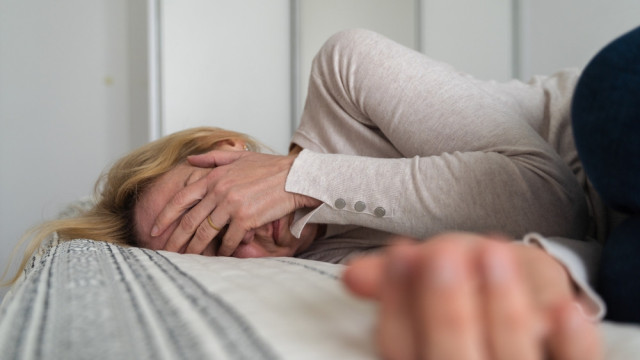





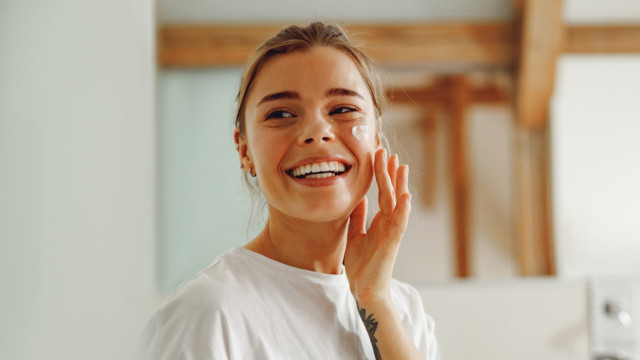
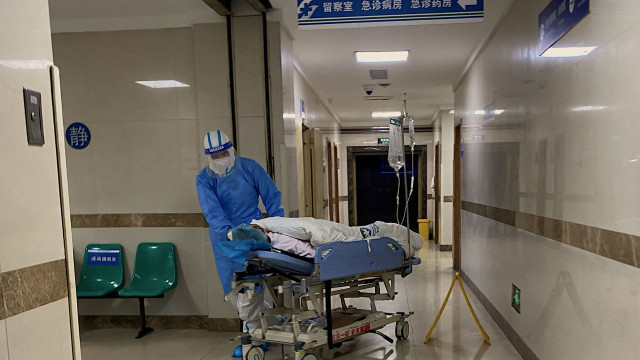
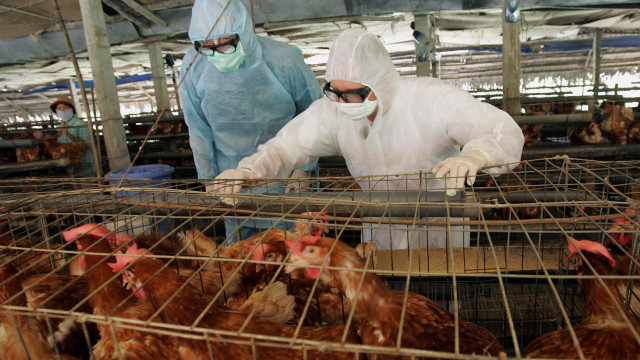


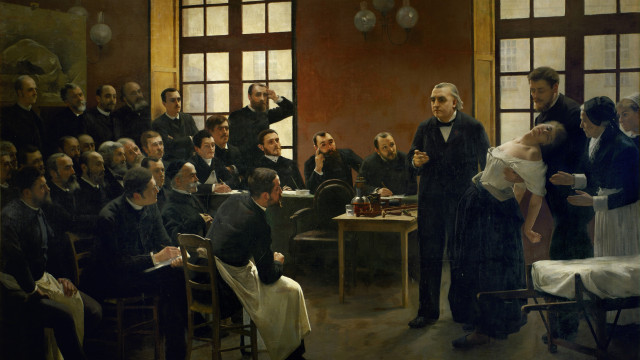










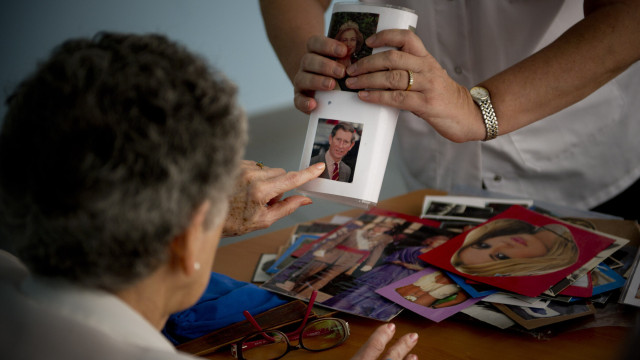
MOST READ
- Last Hour
- Last Day
- Last Week








